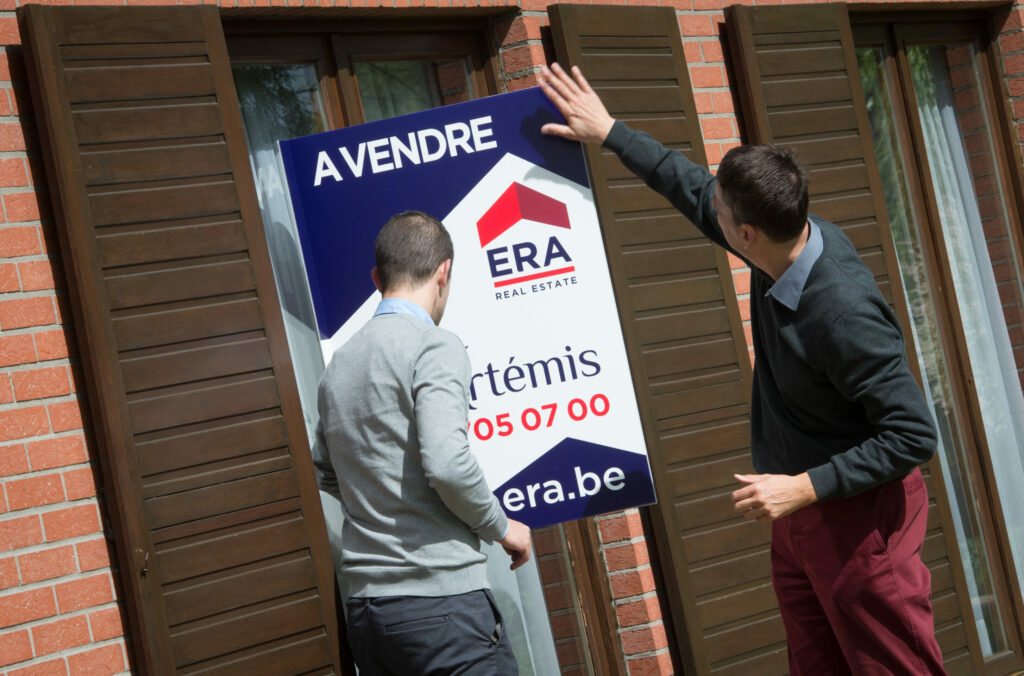After a period of cooling down, Belgium's property market is picking up again, and well before an anticipated drop in prices. In the meantime, a range of factors and measures mean property will only get more unaffordable.
The number of property transactions in Belgium remains below 2023 levels, with a 1.2% drop in sales, the Real Estate Barometer of the Federation of Notaries (Fednot) showed. Still, when taking inflation into account, the price remained stable. A house now costs €330,000 on average in Belgium, while the cost of a flat is on average €270,000.
"You would assume, if there is a cooling down and fewer transactions are made during several quarters [driven by rising mortgage rates, Ed.], that prices would also go down," Fednot spokesperson Bart van Opstal told The Brussels Times. "But we have concluded that this is not the case in Belgium."
He added that it is a remarkable phenomenon and proves, to some extent, the stability of the Belgian property market. "It also means that those who waited to buy in the hopes that prices would eventually start falling probably made the wrong choice."
Gradual picking up
Meanwhile, compared to the marked drop in the first three months of this year (-7.3% compared to the start of 2023), real estate activity is clearly picking up, and more people are returning to the housing market.
"It is a gradual shift but we are seeing that transaction figures are going up," van Opstal said. "It will be quite interesting to see what this does to the prices. If this rise continues, then it is only logical to think that prices are no longer going to remain stable but rather, will rise with the demand."
Mortgage rates are envisioned to decrease slightly as the European Central Bank (ECB) is widely expected to announce a rate cut during its upcoming meeting on Thursday in light of the deteriorating economic conditions and declining inflation.
"If interest rates on mortgage loans continue to fall, it will again become a bit cheaper for people to buy," van Opstal said. Young people will likely be particularly driven to buy a this point. "Already young people have market share from 27% at the start of 2024 to 30% now. "If they become more active and mortgage loans become cheaper, then surely it is unlikely we will see any price drops."
Other factors will likely further prompt a rise in transactions, and, therefore, in price. Flanders is expected to reduce registration fees for the purchase of a first home from 3% to 2% in 2025, while in Wallonia, a registration tax cut from 12% to 3% will come into effect. "In the south of Belgium, the impact is expected to be even bigger because the cut is so dramatic."
Smaller rise expected in Brussels
Interestingly, in Brussels, the house price fell by -1.4% in the first nine months of 2024, even without taking inflation into account. But people shouldn't forget that this is only because Brussels is already so expensive."
The average cost of a house here is €555,000, over €200,000 more than the average for Belgium. "Paying this amount of money for a house is not nothing," van Opstal said. The Fednot has noticed that the more expensive the property is, the fewer prospective buyers there are. "This is because fewer people can afford to spend so much. So in that sense, Brussels is always a slightly more difficult market."
However, even across the country, house prices have risen by a quarter since 2019. "We always think that the maximum that people will be willing to pay has been reached," van Opstal noted. Still, any increase that does happen will be gradual.
"A typical characteristic of Belgian real estate is that there are few jumps up and down, like in the Netherlands or Britain. But the way the indicators look now, it is likely that we will only see further price increases."

